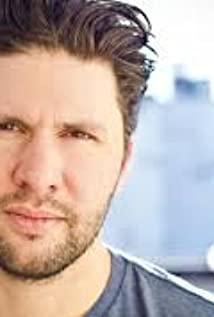From the very beginning, the film has raised the banner of freedom against consumerism and materialism. A group of children spewed out some meaningless conversations about fascism and Trosky from their mouths like robots. The father seemed to encourage his children to think critically, but in fact he completely shrouded them under his own worldview. This is not education, this is indoctrination, and this is duck filling. What is the difference between this and the teenagers in a private school? What is the difference between Noam Chomsky and Confucius?
The nausea of the whole film culminated in the night when Ben went to stay with relatives. In order to show the success of his education, Ben asked Zaja to recite Bill of Rights in full. An eight-year-old girl parrotingly began to talk about the rights granted to the American people by Bill of Rights, and concluded that without Bill of Right, the United States would be like China. This is ridiculously irritating. A family that doesn’t even know Nike is a kid. What China and Corporation do they know? Let's think about this scenario carefully. Ben said that you use your own understanding to describe the impact of Bill of Rights on our lives. The little girl tilted her head and put forward this argument in China. pause. This little girl was born in the United States and grew up in the mountains and forests. She has never seen anyone other than her family since she was a child, let alone contact with any Chinese, nor has she ever been to China. In what she talks about China, what are her real experiences and conclusions? Absolutely not. This detail and countless other details tell us that the director and screenwriter of this film did not really want to discuss education, they just wanted to show the superiority of the leftist ideals. Even in the process of showing, they are just using a clever way.
The second half of the film tried to criticize Ben, the resistance of the sons, and the anger of the old man. However, these criticisms passed like a dragonfly. In the second half of the film, the leftist stance even became absurd. While opposing elitism, they applied for elite private schools such as Harvard and Yale. You are liberal enough. Why don't you go to Berkeley? To rebel against the traditional Christian culture, the grave must be dug, but Harvard's tuition must be paid by the consumerist father-in-law. There is a rebellious young son and an elder son in the family, and the two eldest daughters have no independent thoughts from the beginning. You are liberal enough, why are you not feminist anymore?
Stupid and absurd paradise, empty leftist thinking, patriarchal family above authority. Oh, by the way, at the beginning of the movie there was a Pol Pot poster in the little girl's little room. The stupidity of this movie is that it occupies a commanding height of independent thinking and full discussion when it comes up, but there is no real valuable discussion from the beginning to the end. The narration of the whole movie is based on the illusory "children's mental and physical abilities are excellent at the same time", and reached a climax in fantasy.
————————————————————————————————————
The following is a comment to a netizen, which will be posted in the text by the way Bar.
I don't think Ben is utopianism. In fact, I don't care what kind of ideology Ben is, and I don't care what ideas Ben teaches children. What I don’t like is the way the film discusses education. Left-wing thinking is closely connected with society; the birth of the bill of rights is closely connected with society; the accusations of consumerism are even more closely connected with society. All of these ideas were brought up because of collisions and compromises between people, because some people witnessed the deprivation of rights of minorities, and some people experienced the pain of indulging in consumption. These valuable thoughts are not fantasies, but are produced in social reality.
And this movie describes a kind of ideas that can be acquired through "education" and through reading. Children can understand the immediate pain of consumerism without knowing what consumption is and what Nike is the pursuit of consumerism. Children can be completely satisfied in their rights, just by reading the papers, understand what is going on in China, and make independent criticism.
Knowledge is not acquired in this way. The director used to tell such a family with perfect knowledge to convey a very arrogant and very unreasonable message: knowledge is not acquired through practice, you only need to read a book and discuss with your father. Then, what field experiments do we want, and what control groups do we want? All we have to do is sit at home and produce sociological knowledge.
So I hate this movie, not because of the ideas it conveys, but because it does not respect education and knowledge.
——————————————————————————————————————
Post another reply.
If stupidity makes you uncomfortable, let me change the word. I think this movie is very boring. The problems discussed in the film have appeared for decades, and the solutions proposed by the film have appeared for decades, and some people have really done it. Israel has similar settlements, probably in the United States. Those who are interested can see this http://www.vice.com/read/i-went-to-a-futuristic-hippie-commune-in-the-desert-arcosanti .
The so-called shining point in the movie is probably that the father encourages the child to express his opinions, and openly explain to the child rather than cover up something. I think it's good, but are these two small clips satisfying?
Of course, what I see when I watch a movie is something I am familiar with, but so is when I make a movie. It's not that what is said in the lines, but what is expressed in the movie; it's not that the director pulls back a bit at the end, it's that the director is seriously reflecting on the things he built before. If a film review of a few hundred words shows the author's personality, the two-hour film is full of director's thoughts. IMHO, the author's thinking behind these shining fantasies is boring. Most of his thinking about education is based on fantasy, and does not provide any meaningful discussion. It is not that if you encourage children to have independent thinking, they will be able to think independently. If you control the list of books your children read, guide discussions, and have a strong tendency toward values, independent thinking is limited. If the director really wants to discuss independent thinking, why not set up a conservative alternative in the children and let them argue?
As for the loophole you pointed out, I didn't write it as a thesis originally, and I admit that it was irrational.
View more about Captain Fantastic reviews











